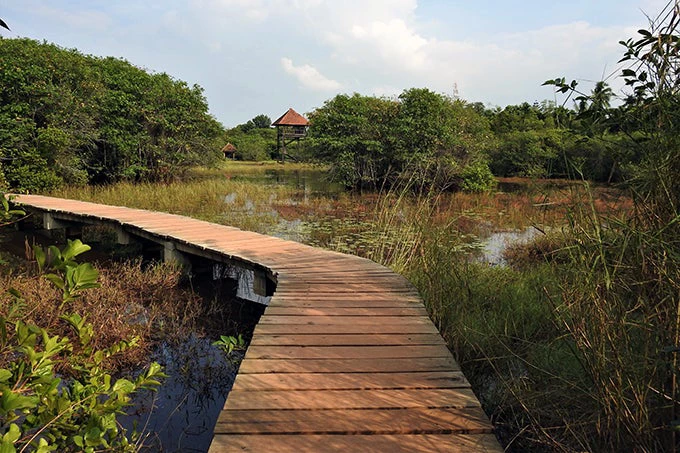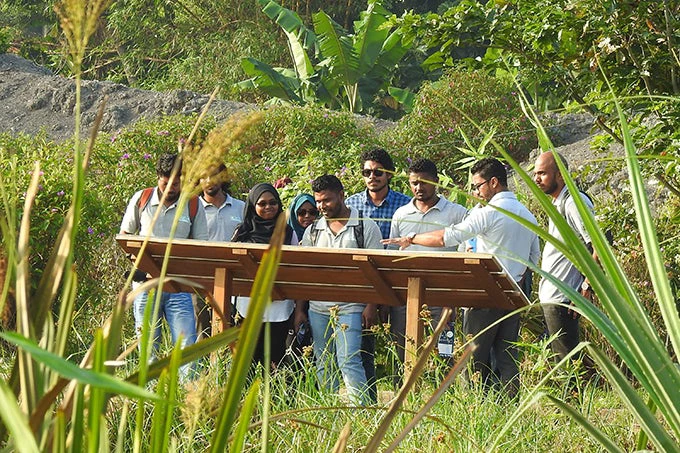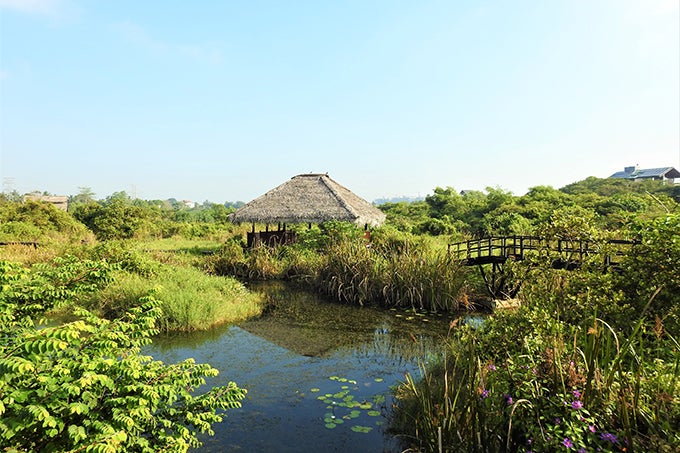
Sri Lanka and Maldives share much more than the tag of tourism hot spots, beautiful beaches, and similar cultural traits. Both island nations have a range of unique environments that are rich in biodiversity and serve a myriad of ecosystems functions.
Both countries are home to rich wetlands with a variety of fauna and flora that benefit the ecosystem, including flood protection, water purification, and natural air conditioning and provide food and support to local communities.
Sri Lanka has actively been working to ensure these essential ecosystems are protected. The Maldives has too commenced such great work. This work has produced a wealth of knowledge and innovations on how to manage and conserve wetlands.
Managing wetlands in Sri Lanka and Maldives
The wetland management and land use planning effort undertaken in Colombo under the World Bank-financed Metro Colombo Urban Development (MCUDP) project showcases resilience in urban land use planning and highlights how a city can become more livable by intermingling green spaces to its urban fabric. All this, while protecting wetlands and reaping the benefits of their natural ecosystem functions.
The MCUDP used robust strategies and sustainable economic models, such as wetland parks, to help save urban wetlands from threats such as encroachment and clearing. Through the Climate Change Adaptation Project (CCAP), funded by the European Union and the Government of Australia, Maldives has also taken steps to manage threats to its largest wetlands.
While the approaches to wetland management in both countries have been different there are many key lessons that can be shared.
Island to island learning
In early January 2018, Colombo became the center stage for a successful collaborative knowledge-sharing on wetlands management.
Jointly organized by the World Bank’s Environment and Natural Resources Global Practice and the Social, Urban, Rural and Resilience Global Practice, the program was centered around the theme of Wetland Management and importance of seeing wetlands as resilient environmental infrastructure.
A delegation of 18 members from the CCAP Project Management Unit (PMU), the Ministry of Environment, the Protected Area (PA) Management Units of the Koattey and Eydhigali Kilhi Wetland Protected Areas, the Baa Atoll Biosphere Reserve Office and the Environmental Protect Agency engaged with local counterparts from the Wetland Management Unit of the Sri Lanka Land Reclamation and Development Corporation (SLLRDC), the Urban Development Authority (UDA), and both PMUs of the MCUDP and the Strategic Cities Development Project in Colombo. The program was run by representatives from all organizations having an opportunity to share knowledge via discussions, presentations, field excursions and lightning talks.

Lessons on wetlands management
“We seem to have the same challenges when it comes to conserving our wetlands and community involvement is an important part of wetland management,” noted the Wetland Coordinator of the CCAP at the close of the program.
While funds can be invested to set up resilient wetland infrastructure like wetland parks and wetland centers, their management is challenging. Interest in wetlands needs to be maintained to make these investments sustainable, bringing in revenue for management.
“Wetland centers need to be run with a rapidly evolving setting and audience in mind, wetlands parks should offer recreation to a myriad of niche visitors, ages, and interest groups. It is only then we can keep more people coming to our wetland parks showcasing not only the importance of wetlands but also that they bring more returns on investments made,” shared the Wetland Management Unit of the SLRDCC.
This is something to be driven by many innovative marketing strategies. From photo contests to engaging tours and events, SLRDCC and UDA shared several great examples of how they have spurred interest in the Wetland Parks they now manage.
The CCAP was quick to put learning into action and has already kickstarted an Instagram photo contest to mark World Wetlands Day. The agencies also discussed how this cross-country engagement can continue and be extended to other international agencies.

Forming a global wetland network
Koattey and Eydhigali Kilhi will soon be joining Wetland Link International, a support network for wetland education centers, joining Diyasaru Park.
The knowledge and networking event helped form several such links that offer limitless possibilities. It was a great experience and we are extremely thrilled to share this initiative. Such programs can easily be organized across countless environmental and natural resource management areas, across governments and global practices and our projects focused on wetland management.
As we celebrate today World Wetlands Day, we hope that the wetland network grows across the boundaries of South Asia, and with it the commitment to protect our wetlands, so that every day becomes World Wetlands Day!


Join the Conversation